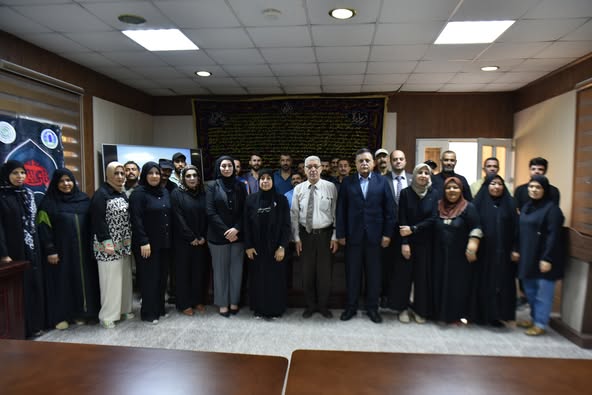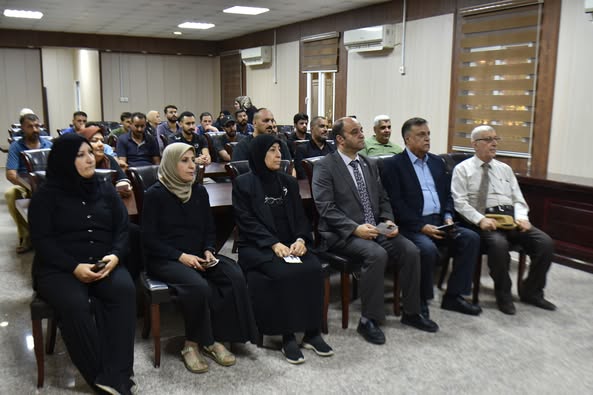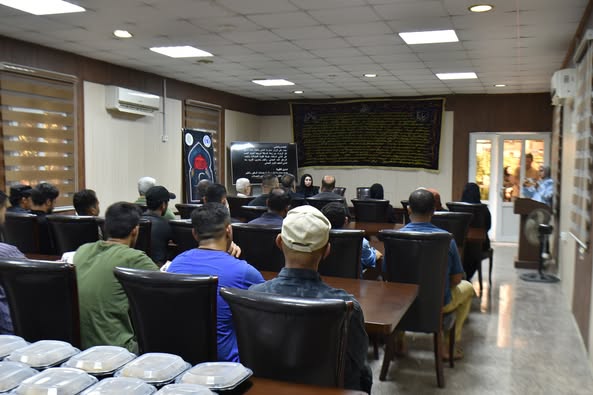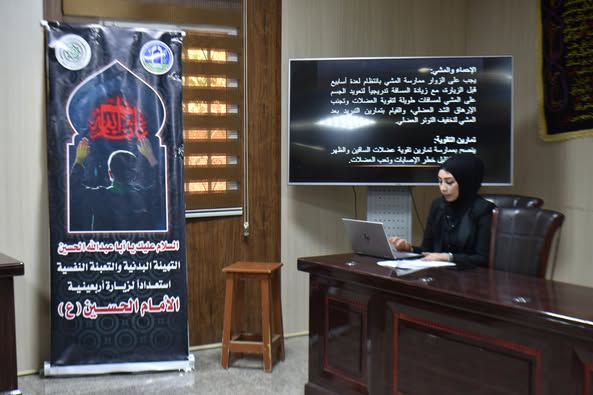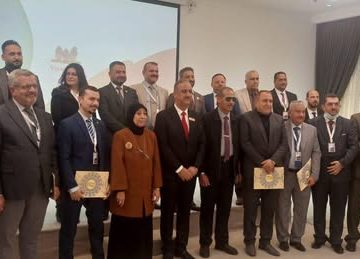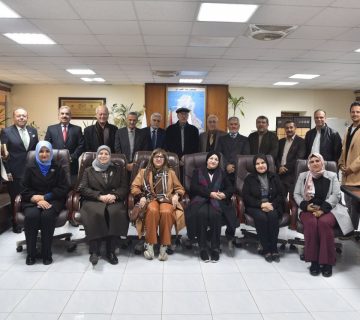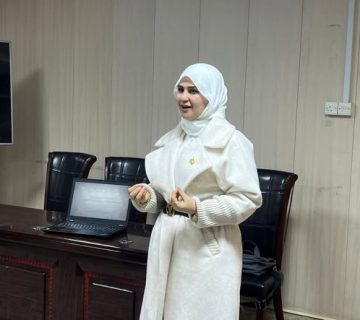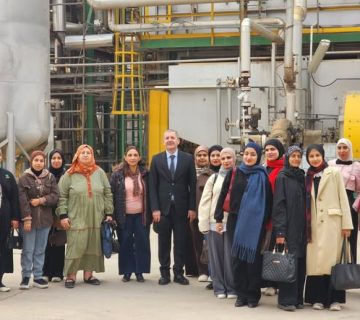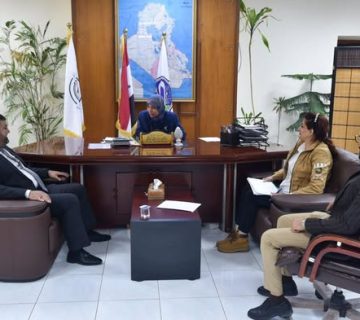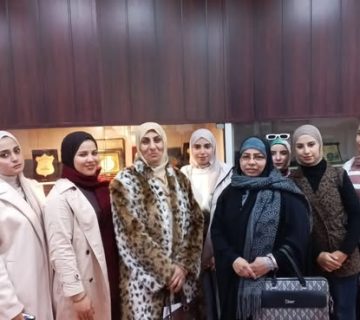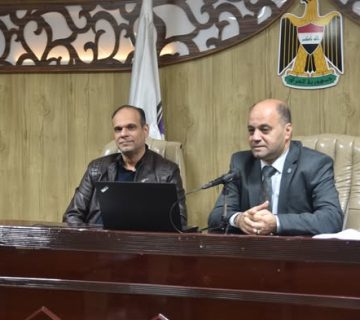The Student Activities Unit organized a workshop entitled Physical and Psychological Preparation for the Arbaeen Pilgrimage of Imam Al-Hussain (peace be upon him), conducted by Ms. Ghufran Zaid, in the presence of the Dean, Professor Dr. Sameera Naji Khdim, the Associate Deans, the Head of the Journal Unit, and Dr. Abdul-Hamid Mohammed from the University of Technology.
The workshop aimed to provide awareness guidelines for pilgrims, with a particular emphasis on performing acts of worship on time and adhering to public etiquette.
The workshop addressed the importance of physical preparation for the Arbaeen pilgrimage, stressing that such a journey requires careful planning to ensure a safe and comfortable experience. It was recommended to begin physical training well in advance to strengthen muscles and improve endurance, as well as to ensure that all necessary supplies are prepared and safety instructions are followed.
It further emphasized the need to engage in regular walking exercises several weeks prior to the pilgrimage, gradually increasing the distance to accustom the body to long-distance walking. This practice helps strengthen muscles and prevents fatigue and muscle strain. The workshop also recommended performing cool-down exercises after walking to reduce muscular tension.
In addition, participants were advised to practice exercises that strengthen the muscles of the legs, back, and abdomen to reduce the risk of injury and muscle fatigue. The workshop highlighted the importance of wearing loose, comfortable clothing that allows freedom of movement, is lightweight, breathable, and sweat-absorbent, preferably made from cotton or other natural fabrics.
The workshop also covered essential health guidelines, stressing the importance of following medical advice, particularly for pilgrims with chronic illnesses such as epilepsy, diabetes, and hypertension. It was advised that such individuals consult their physicians before traveling and ensure they carry their complete medical records.
Attention was drawn to the need for precautionary measures to prevent influenza infection, especially for those with heart and lung diseases, asthma, a history of myocardial infarction, kidney or liver failure, diabetes, and other chronic illnesses—particularly individuals over the age of fifty. The workshop also noted the efforts of various public institutions and community organizations in providing healthcare services to pilgrims.
The workshop concluded with religious recommendations, which included performing the five daily prayers on time, maintaining ritual purity at all times—whether through ablution or full ritual washing—reciting the Holy Qur’an, supplications, and invocations narrated from Ahl al-Bayt (peace be upon them), and listening to religious sermons and lessons delivered during the pilgrimage.
Furthermore, the workshop stressed the importance of good moral conduct in dealing with others, patience and endurance, assisting the elderly, the sick, and the vulnerable, offering help to those in need, and maintaining the cleanliness of holy sites and other visited locations.
